There was a bit of discourse on Twitter recently (shocker) when Flo Milli dropped her new track “BGC,” causing fans to question the release strategies of the biggest labels in the world. Why release a hot club banger when the weather outside is anything but?
That complaint could, I suppose, be leveled at Husbands, Danny Davis’s Oklahoma City pop outfit that churns out breezy, vibed-out summer tunes. CUATRO, their latest album, was released in mid-October, but has songs that are ripe for early July playlisting. The album features some of Husbands’ biggest sounding songs to date—while the project has never lacked immediacy, the layers and textures being experimented with across CUATRO feel uniquely universal, even by the high bar they’ve set in the past. I had the chance to chat with Davis about those sonic shifts, being influenced by both Oklahoma and his new home, Costa Rica, and more.
CUATRO has a sense of scale and size to it that, by my ear, is palpable compared to the previous records—”Can’t To Anything” and the close of “Face Molt,” come to mind as obvious moments, but even the way the chorus and verses of “Vangelis” stack on top of each other just feel bolder and thicker in the mix. How much of that is conscious choice as an artist and how much of that is just a natural evolution as a project, or is it a little of both?
Danny Davis: That was the primary goal with this record—make everything sound as big and anthemic as possible. We only started touring in the last couple of years, and one of the things I noticed early on was how certain songs work differently in different rooms. Small songs feel more intimate in smaller rooms, and big songs hit you harder in the bigger rooms. So I just wanted to have a record that would fill in all the space of a big venue. Also it’s just fun to have a “bangers only” mindset for a record. Every band should do it at least once.
How did Oklahoma broadly influence that sound in those early days? I know you’ve described your sound as ostensibly a state of mind, and in some ways likely a rejection of where you were physically, which is a very post-scene, online way to consider influence and sound. But I’m curious if anything in that area of the country bled through into the Husbands sound, since there is such a clear contradiction of ideas.
DD: Certainly there’s the influence of the Flaming Lips, which is present in most of the rock (and especially indie rock bands) that come out of this state, whether consciously or not. They do everything right; the melodies are beautiful, the recordings are both hi-fi and lo-fi at the same time and very tastefully mixed, the performances are next level, the chord choices are interesting, they push the limits of their sound while remaining consistent to themselves, they can go super hard and super soft, aggressive and tender, the lyrics are profound while adventurous and original and nonsensical occasionally, etc etc. That’s not to mention the live show, which is obviously what they’re best known for at this point. I could go on and on about the Lips, but maybe that’s enough.
We’re also huge fans of BRONCHO, which led us to working with their producer Chad Copelin, who also works with several other Oklahoma bands we love (Wilderado, Sports, etc), among a long list of non-OK acts that is too vast to name them all (Sufjan Stevens, Kacey Musgraves, Third Eye Blind, LANY, Colony House, etc etc). Husbands worked with him for a handful of songs on our last two records, and for CUATRO we did all the drums and over half the instrumentation at his studio in Norman. He’s been a huge influence on me personally in terms of technical and practical things. He’s generous with his studio knowledge, from engineering, to mixing, to who to use for mastering, to how to tackle creative problems in a song, to when to honor your workflow and take a break and clear your mind. He’s the closest thing I have to a musical mentor. I think as much as he’s worked with Oklahoma artists over the years, big to small, you could fairly classify his individual influence on Husbands as an “Oklahoman” influence, because it’s also present in so much of the scene here.
Oklahoma is also a place where there’s not always a lot to do, plus the weather is often unforgiving so you don’t want to be outside. So you stay inside and make music. If I lived in NYC or California or somewhere rich in culture, scenery, or weather temps during the formative days of the band, it probably would have slowed me down a bit simply due to beautiful and interesting distractions. That’s one of the reasons to appreciate being here, honestly.
On that, has Costa Rica influenced the current sound? Or, if anything, is CUATRO simply a continued slight evolution from the ideas that came on FULL-ON MONET, AFTER THE GOLD RUSH PARTY, etc?
DD: Costa Rica has been in my life since 2016, and on a more serious level since 2018 when my wife and I had a life changing three month house sitting gig on the southern coast that eventually led me to quit my job to pursue music full time, and ultimately move there last year. So it’s been a continuous influence on all three of those records. I don’t know if it’s affected the sound as much as it’s affected the lyrics—although because I don’t have my full home studio setup when we’re down there I tend to write more with an acoustic guitar, which has some effect on the songwriting. As I spent more and more time there over the years, I can trace the lyrical content and attitude of the songs to the deepening of a connection with the Costa Rican pura vida lifestyle.
There’s a line in the first song of AFTER THE GOLD RUSH PARTY (“Cherries”) that says “to go is to not come back the same.” That whole song is pretty much about going to Costa Rica and realizing you can choose to live your life on your own terms. “She’s a Betty” has the line “lend your friends a surfboard for a time,” which was about how I had to leave my board there after we left to come home back to the grind, but knowing I’d come back to get it and keep it someday—even if it was three and a half years later. I wrote most of the lyrics to CUATRO in November and December of last year when I was there. While there’s still some tension in the record related to navigating changes in the band, there are also notes of inner peace as it relates to the sense of self-assuredness that comes from following your heart and knowing that was the right call.
Your Spotify bio cheekily describes your music as “landlocked beach pop.” CUATRO continues to creatively expand that box, but I have to ask if that kind of spritely, surfy sound ever becomes hard to break out of. There are a lot of different genres being twisted and turned and explored throughout your albums but when I listen to Husbands or, say, a contemporary like The Drums, I wonder how hard it can be to honor that sound while not feeling as though it’s a sonic burden.
DD: I don’t consciously feel boxed in by genre designators, regardless of whether they’re externally or self assigned. Our music generally has an underlying and persistent optimism that manifests itself in sunny tones and upbeat tempos, so from my point of view that even keel spirit is what keeps it cohesive. While there’s certainly some amount of effort put towards shaping the overall catalog as sonically consistent, to this point that hasn’t come at the expense of avoiding new sounds or textures that we want to explore. Since I started writing music in 7th grade, my main focus has been on the melodies and songwriting. I will say I do intentionally try to keep things in the pop realm, as far as song structures go, but that’s because most of the music I loved growing up and continue to love the most tends to fall into that category. I was never a hardcore or jam band kind of guy. Pop is an infinitely huge box so I don’t worry about running out of room for personal growth or inspiration there.
That’s also not to say that there aren’t certain musical urges that I don’t need to get out of my system, outside of Husbands. There are hundreds of demos that don’t fit in the Husbands’ box that probably won’t ever see the light of day. Like this ambient 30-minute guided meditation interspersed with sample based song snippets that’s been sitting in the Dropbox since 2014; or a Halloween record that goes a little too far into dissonant, noise territory. There’s a country record in the vein of Sons of the Pioneers or Marty Robbins that I’ve been working on with a friend of mine for years, but if it ever comes out we’ll just use a different name.
Is it not tempting as an artist in the year 2023 to just be as prolific as possible? To hear how much extra music you have and to compare it to how often you release material, what is the process of recording and releasing music like—as Husbands, but also just as a musician?
DD: I think it’s important to keep your head down and focus on your own natural flow of output. Don’t force anything, and especially don’t base your choices in reaction to whatever other people are doing. I love music, so if there’s more of it being generated now than in the past then that’s great, as long as it remains easy to sift through the turds and fluff. All things music—writing songs, mixing and recording, playing live, listening to records, going to shows—I do it because I love it. If you’re in a creative field and doing things for any other reason than that, then the art is going to suffer. As far as Husbands goes, I like records. So generally I think in terms of 10 songs at a time. When the next 10 are ready and we’re stoked on it, we’ll put it out. Simple as that. For the most part, I self-produce, engineer, and mix the music in my home studio, and in Costa Rica on a tiny interface with a cheap strat (that I pitch down for the bass parts), so the recording part is easy.
I love the phrasing of that, that pop is an infinitely huge box, because it is. And it flows seamlessly into me asking you about the GODZILLA musical you wrote in college, something I can’t seem to find nearly any information on outside of possibly this one news article that may or may not be related?
DD: There’s a YouTube video but to be honest, it’s a performance that is sort of niche to the university we went to and doesn’t translate well to outsiders. It was cool for us though!
You can grab a copy of CUATRO over on Bandcamp!




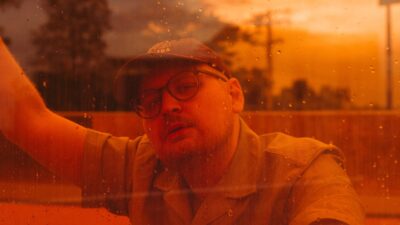
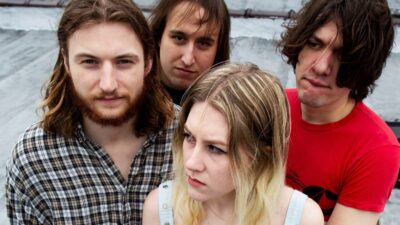

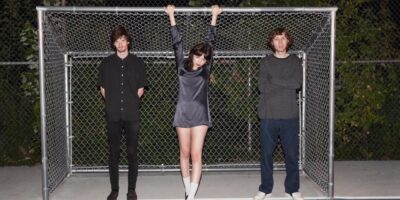

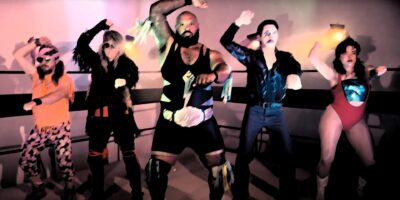
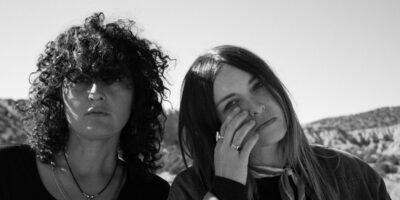





Comments